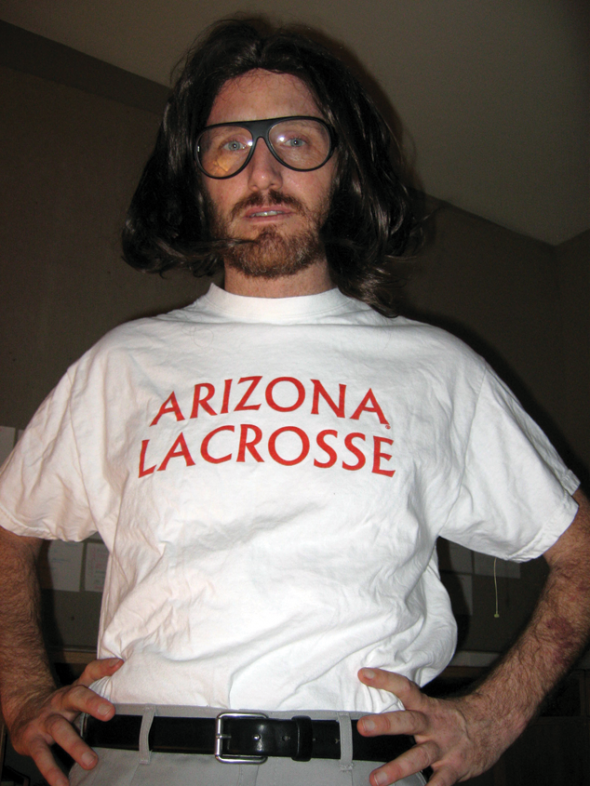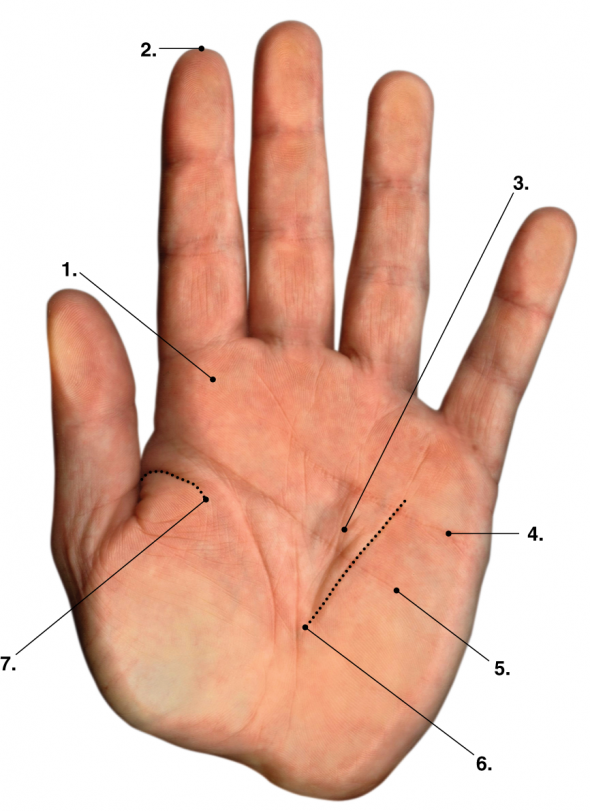
Mike Mills’ voice, like so much of his work, carries an air of directness and vulnerability as he speaks from his studio in Los Angeles. Probably most noted for his first feature-length film Thumbsucker, the 40-year-old designer, director, screenwriter and illustrator is at a turning point in his life. At a glance, Mills’ particular story almost reads like a cliched Hollywood tale of a young man’s rise to fame: a young artist stands out from his peers in school, moves to New York after college, racks up $30,000 in debt, and miraculously finds critical and financial success behind the camera for major ad campaigns with Adidas and Nike.
While the story could have ended there, Mills was never one to turn a deaf ear to matters of the heart and the stripped-down nature found in his work. Themes of loneliness might not make for riveting commercials, but Mills is long since past the allure of bottom line dollar signs. Essentially, he is the kind of artist who can address tough life lessons with a lightheartedness -kind of like a philosopher tackling existential conundrums with colored pencils. Whether he is directing an Air video about two kids who find love at a skate park, creating ribbons that read, “My hands feel cold your body feels warm,” or editing a documentary on depression in Japan, Mills’ work continues to break down and rebuild ideas of love without an overly sentimental voice. SOMA recently caught up with Mills to talk about his “Humans” collection, the dark side of childhood, and the importance of connecting with people.
So, what have you been working on today?
Well, I spent the morning doing graphics and the rest of the day working on my new script. I’m also finishing up a documentary on depression in Japan.
Sounds like you have an ADHD approach, like you work best when you have 13 projects going at once.
Well, not 13, but yeah, it’s nice to have little counterpoints when working, but when I’m really writing, that takes all of your time. It’s really absorbing.
Coming from a design point of view, what kind of similarities do you draw between the two fields?
Design work is like the only other thing in my life that is largely done on my own. The big difference is that graphic design has a much quicker metabolism. I can make so many finished projects per day compared to writing, which is so much slower and unconscious. I think a lot of my graphic design is actually very unconscious and intuitive, but you just get your answers a little faster and easier.
Do you ever envision someone on the other end who is going to put the pieces together?
That’s a good question. It’s funny. There is obviously an audience and the only reason that I do it is to reach out to people. I think the reason I have been able to put so much energy into my art stuff my whole life is because of my inability to have a real relationship. It’s always the same story – I’m just trying to talk to people or to be comfortable in some kind of relationship. But while I want it all to be for people, and that’s what I live for, it’s not really in my head while I’m making it. I think that if it was, the process would be a little too self-conscious and I would start to freeze up.
But you do carry a hope that it’s going to speak to someone out there?
Yeah. It’s always with a goal that it’s going to reach someone. Eventually I start thinking that way towards the end, but when I’m really in the midst of it, I’m somewhere else. I am very alone and the aloneness creates this privacy and safety for me to be really weird.
Like a solace?
It’s not so much of a solace but it is certainly safer, like this false bubble that enables play. And when I go out into the world and show my work to people, I’m always a little surprised. I feel like, “Wow, you actually saw it? It made sense and went into your brain?” It’s a funny little disconnect that people actually experience it.
You just returned from Japan doing press for Thumbsucker and your Humans store. Is it strange watching people in a foreign culture react to your work?
It is a little trippy how people laugh at a lot of the same places in the film in different cultures. I don’t even mean at even a particular joke, more like these weird moments in the film. It just kind of shows you how humans are either not that different or how emotionally globalized we all have become. Like our wiring has become tuned to certain things.
When you turned 27-years-old, you began Mike Mills Diversified. You also happened to rack up $30,000 in expenses and really struggled in the industry. I wondered if you have one of those “power animals” in Thumbsucker that got you through this time in your life.
I think it’s that age-old thing of feeling that you just didn’t have a lot of options. I felt that this was what I was meant to do and I got through by just sheer pride and ego. Thumbsucker took forever to get financed and everybody in the world said no. It was really humiliating on some levels, but it also gets you really pissed. And finally, when I was younger I came to this point where I was like, “Fuck it. I don’t care if anyone wants to hire me.”
Suddenly you’re making these huge ads for Adidas and Nike. Was getting into this new tax bracket strange for you?
I have a funny relationship with money. At first it scared the shit out of me. I felt guilty, like God was going to come down and slap me or something. I don’t know why, but it just didn’t feel right. I guess it depends how you use it, what you do with it and if it changes you or not.
So you bought a few giraffes, big deal?
(laughs) No seriously, I’ve been fucking poor for a long time, you know. But now I’m trying to not do ads anymore.
Did this financial safety-net change your creative process?
Well, I didn’t have to sell art to make money, which is actually strangely liberating.
And probably a bit terrifying.
It was actually scarier than I thought. Now that check for $2,000 is really crucial in my life. I’m like, “Fuck. I guess I’m back here now.” I’m also 40-years-old and I realized that life is short and I need to really prioritize and just do what I really have to do.
Your work has a way of addressing this idea of childhood. It’s not your standard cookie-cutter version that most people are familiar with – yet while it’s a bit darker, I can’t shake this sense that to some degree you’re reclaiming parts of your youth.
I really related to Justin in Thumbsucker. Like how he was giving up his childhood to be his mom’s peer – to be falsely an adult before he is and keep her in the family. And I did that. And when you do that, you tend to unconsciously recreate your childhood for the rest of your life. Like this thing that you didn’t get when you were supposed to and you keep craving and it keeps coming up all the time. I have often been pissed about how my stuff is, but I have to come to terms with it. That’s kind of like the spine of so much of my stuff.
The older I get, the more I feel like childhood is not something that happens, and then it ends. It’s not like this linear or chronological thing.
Yeah, it’s more like a space that you go through. I think that beyond the whole new-agey child stuff, there are unfinished parts that we all keep with us. It’s a place that we keep constantly visiting. Childhood is way more complicated and mature and un-innocent than anyone thinks.
Would you agree that to some extent, we are born into these recurring lessons in our lives?
I think that’s true. If you look at filmmakers, they essentially make the same film over and over again. It’s always the same problem or lesson over and over again.
So, if you were to have a lesson, and there is no right answer here, what do you think the internal Mike Mills was getting at in his work?
(long pause) For me, that’s like the territory that one really doesn’t know about. If you know about it, then it’s over. You’re not really in the lesson anymore.
But there has got to be some recurring themes though, right?
Totally. I don’t know how many fucking times I’ve done a graphic with the word “loneliness” on it. I just did something with loneliness the other day and it felt brand new. I have so many shirts and posters with this word on it that it’s almost silly that I could think it’s new. But I definitely think that all my work, even record covers and the ads, are all about me trying to figure out who I am. I know that might sound really broad and even pretentious, but it’s true. I’m still trying to figure out who the fuck I am.
– Patrick Knowles

Reading by Lena, who has no idea this palm belongs to Mike Mills.
1. A dominant personality. Never a follower. Others will follow him for his air of certainty. He will tend to keep his doubts to himself.
2. This is someone with a strong intuitive process and not a lot of “filter” on it – he feels something, he thinks it, then does it. He does not need to know why.
3. A tendency to retain favorite objects. You will not get that old ratty sweater away from him. Do not try. Some of these objects will actually turn out to be of great value. Eventually.
4. Love is a rocky road for this man. His heart’s love is stronger than sexual love. When he falls, he falls hard, suddenly, completely. And he falls frequently.
5. There is a strong intellect that’s extremely well-balanced. It combines with his intuition, practical behavior and fortuitous circumstances. To those outside of him, it looks like he has damned good luck!
6. His strongest talent is communication. He thinks/speaks way outside the box, living in the norms of society 85 percent of the time – the other 15, he’s soooo far out.
7. As a child he was an impulsive risk-taker. He used up all of his nine lives in his childhood through his early teens.

